Occupations to choose from
Please choose one of the following:
Description
Install, maintain and repair air-conditioning equipment.
Essential Trade Skills
• Correctly use and maintain the tools of the trade including power tools and test equipment
• Use electric and gas welding equipment, perform simple machining and fabrication operations
• Install, test, service, and repair (in association with an electrician, where necessary), plant components such as electrical drive equipment, timing devices, expansion valves, thermostats and pressure switches, compressors, condensers, heat exchangers, fans, pumps, shafts and keys, belts and couplings, and other associated components
• Install, test, service, and repair air-handling plant including ducting fan coils and ventilating fans
• Install, test, service, and repair piping for refrigerant, chilled water, condenser, cooling water, and steam systems
• Diagnose faults
• Read and interpret electrical, mechanical, and building drawings, installation and service manuals, and liaise with building contractors
• Use approved mechanical handling and lifting equipment
Description
Design, install and follow up the progress of Air-conditioning systems and associated equipment.
Essential Trade Skills
• Interpretation of engineering drawings, schematic diagrams and manuals
• Design for central air-conditioning systems
• Testing and commissioning of central air-conditioning systems and equipment
• Installation, maintenance and repair of central air-conditioning systems, air handling units and fan coil units
• Preparation of engineering and progress reports
• Preparation of quotations and tender documents
• Coordination of engineers and subcontractors on project work
Description
Based on the job nature, there are 3 types of craftsmen:
Essential Trade Skills
1) Aircraft Maintenance I
• Practical Training :
Attended courses on bench fitting, use of hand tools, and aircraft trade skills including component removal and installation, standard practices, and maintenance safety practices.
• On-the-job Training :
Participated in aircraft servicing and maintenance checks, system troubleshooting, component removal, installation, cleaning, inspection, modification, repair work on avionics/airframe systems, and structural repair of Airbus and Boeing aircraft such as A320, A330, A340, B747 and
B777.
2) Aircraft Painting
• Use and care of hand tools and paint shop equipment
• Sanding surfaces by hand and with power sanders
• Preparing and applying body filler and primer
• Colour matching and mixing paints to match paint shades
• Finishing coats by using spray guns and nozzles
• Touching up paintwork and applying polish to aircraft
• Treating aircraft with rust-proofing chemicals
3) Terminal Services
• Understanding of cargo and air waybill; mail and cargo handling
• System technology and equipment in terminal operation and cargo handling Operation of the cargo management system
• Understand cargo security-related regulations and security awareness for restricted areas
• Understanding of cargo screening approved methods such as X-ray screening
• Airfreight principles knowledge training such as application of International Air Transport Association "The Air Cargo Tariff Manual", air cargo rates and charges calculation
• Handling of airline's documents and other airline servicing such as Import and export license checking and handling, electronic data handling, operation of airline's system, cargo management system
Description
Maintenance and repair of aircraft and equipment, advanced technical support in standardlization / authorization.
Essential Trade Skills
1) Aircraft Maintenance II
• Practical Training :
Attended courses on bench fitting, using hand tools, and aircraft trade skills including component removal and installation, standard practices, and maintenance safety practices. Standardization training for supervisory.
• On-the-job Training :
Participated in aircraft servicing and maintenance checks, system troubleshooting, component removal and installation, cleaning, inspection, modification, and repair work on avionics/airframe systems and structure repair of Airbus and Boeing aircraft such as A320, A330, A340, B747 and
B777. Basic customer services skills, coaching, and instruction technique.
Description
Based on the job nature, there are 4 types of craftsmen:
Essential Trade Skills
1) Vehicle Machinery
• Correctly use and maintain tools and equipment.
• Correctly use and maintain diagnostic equipment.
• Identify common materials.
• Carry out routine inspections and maintenance.
• Dismantle and examine components for serviceability, repair and assemble in accordance with the recommended procedures.
• Test and diagnose all mechanical and basic electrical faults.
• Undertake road tests.
• Interpret manufacturers' information.
• Produce simple sketches and drawings.
• Make simple reports after inspection or road test.
2) Vehicle Body Repairing
• Correctly use and maintain tools and equipment.
• Identify and use common materials.
• Form and fabricate suitable materials.
• Replace damaged/defective body and chassis components.
• Repair body damage using appropriate body repair equipment.
• Carry out chassis and body alignment checks.
• Correctly use welding equipment.
• Correctly apply body fillers.
• Repair and install ancillary body fittings including window glasses.
• Interpret manufacturers' information and drawings.
3) Vehicle Painting
• Correctly use and maintain tools and equipment.
• Correctly prepare base materials for painting.
• Correctly identify and mix paints to colour specifications.
• Identify common materials.
• Apply all refinishing techniques in accordance with the recommended procedures.
• Identify and rectify paint defects.
• Produce and use stencils.
• Correctly apply transfers.
4) Vehicle Electrician
• Correctly use and maintain tools and test equipment.
• Carry out simple fitting and soldering.
• Identify common materials.
• Interpret wiring diagrams and manufacturers' information, including colour codes and charts.
• Dismantle and examine electrical components for serviceability, repair and assemble in accordance with the recommended procedures.
• Test and diagnose all electrical faults.
• Install electrical accessories.
• Make simple reports after inspection and repair.
Description
Design, install and follow up the progress of motor vehicles.
Essential Trade Skills
• Interpretation of engineering drawings, schematic diagrams and manuals
• Testing and commissioning of all types of motor vehicles
• Preparation of engineering and progress reports
• Preparation of quotations and tender documents
• Coordination of engineers and subcontractors on project work
Description
Based on the job nature, there are 2 types of craftsmen:
Essential Trade Skills
1) Building Services
• Installation of building services facilities
• Testing and commissioning of building services facilities:
( i ) Electrical supply systems
( ii ) Fire services systems
( iii ) Water supply & drainage systems
( iv ) Air conditioning, heating and ventilation systems
( v ) Gas supply systems
• Routine maintenance of:
( i ) Electrical supply systems
( ii ) Fire services systems
( iii ) Water supply & drainage systems
( iv ) Air conditioning, heating and ventilation systems
( v ) Gas supply systems
• Read & interpret engineering drawings, specifications and manuals
• Use and care of hand tools and power tools of the trade
• Use of test equipment and Instruments of the trade welding
• Observe standard safety precautions necessary in the work
• Prepare and maintain records and reports
2) Fire Services
• Interpretation of engineering drawings, schematic diagrams and manuals
• Installation, maintenance and repair of fire services equipment such as sprinklers, hydrants, hose reels, extinguishers, tanks and pumps
• Testing and commissioning of fire services equipment
• Periodic inspection of smoke detectors, generators, break glass units and emergency lighting system
• Coordination of subcontractors on project work
Description
Based on the job nature, there are 2 types of technicians:
Essential Trade Skills
1) Building Services
• Provide technical support and assistance in installation, operation and maintenance of building services systems
• Collaborate with building services engineers or other engineers to identify, define, or solve building services problems
• Design and prepare blueprints of building services installations according to the specifications and regulations
• Prepare contracts or tender documents for Building Services Engineers
• Estimate cost of building services engineering projects, including cost of equipment and labour required for the project
• Monitor technical operations of the installation, utilisation, maintenance and repair of building services systems and equipment to ensure satisfactory performance
• Ensure compliance with design specifications, relevant legislation and regulations, and desired standards of contract provisions
• Conduct tests of building services systems and components under operational conditions to improve equipment performance
• Record test procedures and results, and relevant numerical and graphical data, and making recommendations for further improvement
• Assist in writing technical reports and submitting reports of test results to recommend changes of design
2) Fire Services
• Interpretation of engineering drawings, schematic diagrams and manuals
• Layout design for fire services equipment for sprinklers, hydrants and hose reels
• Testing and commissioning of fire services equipment
• Periodic inspection of smoke detectors, generators, break glass units and emergency lighting system
• Preparation of engineering and progress reports
• Preparation of quotations and tender documents
Description
Based on the job nature, there are 8 types of craftsmen:
Essential Trade Skills
1) Bricklaying/Plastering/Tilings
• Use and maintain tools
• Erect and use of the working platform
• Setting out to mix mortar
Bricklayer
• Cut and shape brick or block
• Point to joint of facing brick
Plasterer
• Prepare surfaces for plastering
• Fix the angle shape
Tiler
• Cut and shape tile
• Lay, bed and set tile
• Point to joint
• Repair damaged tile surface
2) Bamboo Scaffolding
• Use and maintain all hand tools of the trade
• Read and interpret drawings and sketches of scaffolding
• Examine, and select the appropriate scaffolding materials
• Erect scaffolding at specific sites according to requirements
• Fasten bamboo poles by hand with bamboo and/or plastic sheaths
• Set up and secure scaffolding, checking and adjusting alignment and levels of scaffolding as necessary
• Repair damaged scaffolding or other bamboo structures
• Dismantle scaffolding or other bamboo structure
3) Carpentry
• Use and maintain all hand and power tools of the trade, woodworking machines and lifting equipment
• Read and interpret construction drawings and specifications
• Set up for hand and repetitive machine work, use patterns and marking jigs and prepare cutting lists
• Select, mark out, cut and shape timber and make joints according to specifications by hand and/or machines, performing such operations as sawing, grooving, planing and sanding
• Assemble prepared wood and parts by methods such as nailing, screwing, dowelling and gluing
• Cut and fix :
(i) door and window frames
(ii) doors and gates including the necessary fittings
(iii) window boards including the covering of moulds
(iv) framing to ducts, panels, and false ceilings
(v) wall panels and suspended ceilings
(vi) wood grounds, skirting, architraves, and rails
• Make and fix in buildings all kinds of fitments such as cupboards, wardrobes, tables, drawers, and kitchen units
• Undertake drawer dovetailing, fixing, and edging of laminated plastic sheets
• Lay floor boards to various sub-floors
• Position and fix rafters, joists, trusses, and other roof members
• Check and verify the accuracy of work with squares, rules, levels and plumb-lines
• Erect temporary hoarding and wooden structures such as site offices in construction sites
• Erect, strike and maintain timber shores such as raking, flying and dead shores
4) Construction Plant Machinery
• Use and maintain all hand and power tools of the trade, instruments, lifting equipment, basic diagnostic, soldering and welding equipment
• Read and interpret plant or machinery drawings, simple electrical wiring and circuit diagrams, technical manuals or other specifications
• Maintain and service plant and machinery according to maintenance schedule including dismantling and examining the equipment for defects and re-assembling in accordance with recommended procedures
• Diagnose mechanical and electrical faults in construction equipment
• Test, dismantle and repair electrical systems and components of construction plant and machinery
• Remove, repair, and replace damaged or worn parts
• Fit new parts by hand and machine tools according to specifications
• Assemble and test plant and machinery for the correct functioning and make necessary adjustments
• Erect and maintain slip form and steel formwork
• Make simple report(s) after inspection and repair
5) Leveling
• Interpret drawings and specifications for the construction site
• Conduct measurement
• Prepare site records and reports
• Use of instruments and measuring tools
6) Metal Work
• Interpretation of engineering drawings and specifications
• Use and maintenance of all hand and power tools, soldering and welding equipment, metalworking machinery
• Assembling and installing fittings, framed structures, ornamental metal work, railing and fences by bolting, welding or soldering
• Fabricating templates and metal products from drawing
7) Plumbing
• Use and maintain all hand and power tools of the trade, pipe-bending and pipe-threading machines, soldering and welding equipment
• Read and interpret drawings and specifications
• Locate and mark positions and levels for connecting passage holes and fixtures using spirit levels and plumb-lines
• Form holes through walls and floors, leave chases; insert pipe sleeves
• Select the appropriate pipes, measure and mark pipes for cutting or bending
• Cut, fit, bend and thread pipes by hand or machines
• Join piping or attach fittings to piping by soldering, brazing, welding (gas and arc), cementing, fusing, threading, couplings, screwing, compression and flanged joints
• Carry out lead burning and forming (sheet and pipe), and joint wiping
• Install, service and repair the following:
(i) pipes of various materials, control valves and pipe fittings
(ii) various types of pumps and pump systems, pressure tank systems
(iii) rain water, waste and soil drainage systems
(iv) cold and hot water supply systems including all necessary fittings and ancillary equipment;
(v) flush water systems
(vi) Plumbing fixtures and sanitary appliances such as water closets, urinal stalls, wash basins, baths, sinks and other kitchen equipment
(vii) fire service piping including various fire-fighting equipment, pumps, fire extinguishers and sprinkler systems
(viii) gas piping and appliances
• Test plumbing installations for leaks and correct functioning by carrying out hydraulic pressure, air pressure, smoke and chemical tests (e.g. on drains and soil pipes)
8) Permanent Way Machinery
• Non-destructive test
• Patrolling
• Thermite welding
• Measure track gauge
Description
Based on the job nature, there are 2 types of technicians:
Essential Trade Skills
1) Building Information Modelling
• Apply the Building Information Modelling (BIM) standards and guidelines currently used and recognized by the industry
• Operate BIM software to build project work involving structural, architectural, and E&M models
• Federate different discipline models for design review, phase planning, and clash analysis
• Create and modify BIM information within Common Data Environment (CDE) across the lifecycle of construction
• Perform effective communication with consultants and contractors
2) Construction Technique
• Interpret drawings and specifications for construction sites
• Supervise construction site works
• Check materials submission
• Co-ordinate with other parties on site
• Prepare site records and reports
• Assist site agent in estimating the cost and time of temporary works
Description
• Site measurement of completed works and application of the Standard Method of Measurement
• Computing and preparing for interim payment claims and final accounts
Essential Trade Skills
• Read and interpret specifications, manuals, construction drawings and numeracy applicable to surveying works
• Read and check traditional architectural / construction drawings to fit the requirement
• Apply the knowledge of the use of various standard forms of contract at project level including implications and obligations
• Carry out measurement and costing of works at all stages of construction process
• Prepare and evaluate the variation orders in construction works
• Prepare the interim payment and final accounts application for construction project
• Prepare tender / cost estimation / bills of quantities for construction works
• Perform effective communications and inter-personal skills with consultants / contractors / workers
Description
Based on the job nature, there are 6 types of craftsmen:
Essential Trade Skills
1) Cable Joining (Power)
• Correctly use and maintain the tools of the trade including power tools and the test equipment
• Prepare cables and accessories for the jointing process
• Joint copper or Aluminium conductor cables
• Terminate cables using soldering or compression techniques
• Plumb lead or Aluminium sheathed cable in any plane
• Joint pilot cables of any type
• Identify different types of cables
• Correctly instruct any apprentice or semi-skilled worker assigned to him
2) Electrical Appliances Service
• Correctly use and maintain the tools of the trade including power tools and test equipment
• Use electric and gas welding equipment, and perform simple machining and fabrication operations
• Install, test, service, and repair appliance components such as motors, motor starters, switches, fuses, overload cutouts, relays capacitors and solenoids, timing devices, thermostats, pressure switches, fans, pumps, pulleys, shafts and keys, belts and couplings
• Install plumbing and wiring associated with electrical appliances
• Diagnose faults
• Read and interpret electrical and mechanical drawings, installation and service manuals
3) Electrical
• Apply occupational safety and health practices in workplaces
• Apply commonly used regulations and codes of practice relevant to electrical installations
• Read and interpret specifications, manuals and engineering drawings applicable to engineering work
• Use and maintain hand tools, power tools, test and measuring instruments of the trade
• Identify and rectify faults in electrical installations
• Apply commonly used electrical materials such as wires and accessories
• Install conduits, trunking, cable trays, lighting facilities, cables, socket outlets, etc.
• Install and maintain switchboards
• Carry out installation, modification or maintenance works on fixed electrical installations
• Carry out electrical installation tests
4) Electrical Fitting
• Correctly use and maintain the tools of the trade including power tools and test equipment
• Carry out mechanical fitting and assembly relevant to heavy current equipment, and machine or fabricate parts for such equipment
• Install and repair motors, generators, transformers, heaters and pumps, switchgear and other associated control equipments
• Install meters, instruments, relays, and protection equipment
• Wire control circuits, indication and alarm systems
• Use approved mechanical handling and lifting equipment
• Diagnose faults in electro-mechanical devices
• Rewind motors, generators, transformers, etc
• Read and interpret electrical and mechanical drawings
5) Electrician
• Correctly use and maintain the tools of the trade including power tools and test equipment
• Install all types of commonly used wiring and wiring accessories in normal situations and special wiring and accessories in hazardous situations
• Install electrical equipment such as motor starters, controllers, and switchgear
• Locate and repair faults in electrical installations and equipment
• Identify different types of cables and wires
• Read and interpret simple electrical specifications, wiring and circuit diagrams, and building plans
6) Overhead Lines
• Correctly use and maintain the tools of the trade including power tools and telecommunication equipment
• Set out support positions in accordance with predetermined routes and profiles
• Prepare and complete foundations for supports and stays and erect supports
• Climb supports using ladders, climbing irons and other aids
• Run out, tension, sag, bind in, joint, bond, and terminate all commonly used conductors and service cables
• Correctly instruct any apprentice or semi-skilled worker assigned to him
Description
Perform technical tasks to aid in electrical engineering project, design, manufacture, construction, maintenance and repair of electrical equipment, facilities and distribution systems.
Essential Trade Skills
• Provide technical assistance in resolving electrical engineering problems and developing electrical equipment and facilities
• Collaborate with electrical engineers or other personnel to identify, define, or solve developmental problems
• Inspect electrical project work for quality control and assurance
• Design and prepare blueprints of electrical installations according to specifications and regulations
• Estimate detailed electrical project cost, including material and labour costs for the project
• Monitor technical operations of installation, utilization, maintenance, and repair of electrical systems and equipment to ensure satisfactory performance
• Plan installation methods, check the completed installation for safety; undertake the initial running of new electrical equipment or systems
• Review and coordinate ongoing modifications to contract specifications or plans
• Perform installation, maintenance, repair, and test of electrical fixed installations and equipment
Description
Based on the job nature, there are 6 types of craftsmen:
Essential Trade Skills
1) Audio-Visual and Radio-Frequency
• Use of tools of the trade
• Identification of commonly used electronic components and materials
• Soldering Technique
• Read and interpret service manual and circuit diagrams
• Use measuring and testing instruments for checking, testing, and fault-finding
• Diagnose, repair or replace faulty component(s) / module(s) of analogue / digital television receivers
• Diagnose, repair or replace faulty component(s) / module(s) of video tape recorder / digital video recorder
• Diagnose, repair, and replace faulty component(s) /module(s) of radio, audio, high fidelity equipment, aerial system, and other consumer video equipment
• Align and install radios, television receivers, and other consumer audio/video equipment according to specifications
• Carry out all necessary safety precautions
2) Electronics
• Install and maintain audio-visual products and other electronic equipment
• Install and maintain multimedia and entertainment electronic equipment/systems and telecommunications and surveillance systems
• Install and maintain electronic, electrical and mechanical instruments, meters and systems
• Interpret test data to diagnose malfunctions and systemic performance problems
• Repair and replace worn and defective parts and wiring
• Coordinate work with technicians and other maintenance staff
• Test newly installed equipment/systems to make sure they work properly
• Carry out all necessary safety precautions
3) Instrument Application
• Use electrical and mechanical measuring instruments and meters.
• Make simple electrical or mechanical adjustments to bring instruments and meters within calibration limits.
• Overhaul and test instruments and meters, replacing any worn or defective parts in accordance with standard instructions.
• Clean instrument and meter parts using appropriate methods and cleansing agents.
• Calibrate or re-calibrate instrument dials.
• Correctly use and maintain hand and machine tools of the trade and optical devices.
• Read and interpret simple engineering drawings, instructions and wiring diagrams.
4) Lift Control
• Correctly use and maintain the tools of the trade including power tools, measuring and test equipment.
• Install all types of commonly used wiring and wiring accessories in lift installations in normal and hazardous situations.
• Install, test, adjust, maintain, locate and repair faults in lift electrical installations and equipment, and carry out modifications to control circuits according to instructions.
• Install, test, and repair remote monitoring units, extra low voltage devices and relevant electronic equipment of lifts and escalators.
• Follow emergency procedures in accordance with the latest edition of the Code of Practice for Safety at Work (Lift and Escalator)
• Perform simple machining operations.
• Climb ladders and scaffolding.
• Read relevant electrical, mechanical and building drawings, liaise with electrical contractors, and prepare simple wiring diagrams and switching circuits.
5) Electronics Manufacturing and repairing
• Use of tools and mechanical measuring instruments of the trade
• Identification of commonly used electronic components and materials
• Soldering technique
• Read and interpret the functional block diagram
• Read and interpret service manuals and circuit diagrams
• Calibrate and check commonly used electrical/electronic measuring and test instrument
• Assemble circuits
• Alignment of products
• Visual inspection / touch up
• Diagnose and repair, semi-finished parts of electronic products such as AM radio, FM radio, clock radio, cassette recorder, electronic games, TV games, digital telephone sets, personal computers, etc.
• Final repair of electronic products
• Construction of testing circuits
• Carry out all necessary safety precautions
6) Security and Communication Systems
• Install, test, service and repair various systems including access control systems, burglar alarm systems, closed-circuit television systems (CCTV), guard patrol systems, carpark gate control systems, public address systems (PA), audio and video intercom systems, communal aerial broadcast distribution (CABD) and satellite master antenna television (SMATV), etc
• Use and maintain the tools, test equipment and Instruments of the trade
• Use the soldering iron to perform soldering work
• Identify and use industrial common components and materials
• Read and interpret circuit diagrams and service manual
• Test and diagnose faults
• Produce simple sketches and drawings
• Write simple reports after inspection and repair
Description
Perform technical tasks to aid in electronic project and in the design, manufacture, assembly, operation, maintenance and repair of electronic equipment.
Essential Trade Skills
• Provide technical assistance in projects, designs, installations and operations of electronic equipment
• Read and design blueprints of electronic circuitry according to the given specifications
• Estimate the cost of materials and labour required for the manufacture and installation of electronic equipment
• Perform manufacture and preventative maintenance or calibration of equipment to ensure satisfactory performance and ensure compliance with specifications and regulations
• Plan installation methods, checking completed installation for safety and controls or undertaking the initial running of the new electronic equipment or system
• Assemble, or maintain circuitry or electronic components, according to technical manuals
• Write reports and record data on testing, laboratory equipment, or specifications
• Conduct tests of electronic systems, collect and analyse data, and assemble circuitry in support of electronics engineers
Description
Based on the job nature, there are 2 types of craftsmen:
Essential Trade Skills
1) Gas Utilisation
• Use and maintain common hand and power tools of the trade, pipe-fitting and pipe-jointing equipment, pressure measuring instruments, testing and diagnostic equipment
• Read and interpret drawings and specifications
• Locate and mark positions for pipe connections, passage holes and fixture
• Cut passage holes through walls and floors
• Cut, fit, bend, connect and install internal piping including purging and testing for soundness
• Install, test and commission the following:
(i) gas meters and their associated controls
(ii) internal piping systems
(iii) domestic, commercial and industrial gas appliances, their gas, water and electric controls and other associated fittings and equipment
• Diagnose mechanical, electrical and electronic faults in gas appliances and installations
• Dismantle and examine for defects, repair, re-assemble, test and adjust gas appliances, meters and associated equipment in accordance with proper procedures
• Undertake routine servicing of all gas appliances and attend to emergencies in accordance with proper procedures
• Prepare reports after inspection and repair
2) Gas Network
• Use and maintain common hand and power tools of the trade, pipe-fitting and pipe-jointing equipment, pressure measuring instruments, testing and diagnostic equipment
• Read and interpret drawings and specifications
• Install and maintain pressure control and governor system
• Install and maintain gas network and ensure network quality
• Undertake routine servicing of all gas network and attend to emergencies in accordance with proper procedures
• Follow up distribution project, pipelaying project, trenchless project, ECO/liquefied petroleum gas project
• Inspect trench and utilities coordination
Description
Install, maintain and repair network systems and equipment.
Essential Trade Skills
• Install communication and broadband network
• Lay optical fibers and twisted pair cables
• Use and maintain the tools, test equipment and Instruments of the trade
• Configure network equipment including router, switch, wireless access point (Wifi AP) and firewall, etc
• Read and interpret circuit diagrams and service manuals
• Test and diagnose faults
• Create simple sketches and drawings
• Write simple reports after inspection and repair
Description
Based on the job nature, there are 3 types of technicians:
Essential Trade Skills
1) Application Development
• Programming and Software Development
• Software Development and Assurance
• Object Oriented Technology
• Database Principles
• Network and Operating Systems Fundamentals
• Project management including programming, testing, debugging, and maintaining application
• Prepare records and reports
2) Telecommunications and Networking
• Monitor facility and network equipment operation in exchange center
• Report and follow up on fault items
• Setup, configure, monitor and maintain operations of various types of communication equipment
• Use and maintain the tools, test equipment, and Instruments of the trade
• Lay optical fibers and twisted pair cables
• Measure wireless signal strength
• Test and set network bandwidth
• Provide technical support including software backup and update, hardware upgrade
3) IT System Administration
• Setup, configure, monitor, and maintain operations of various types of information technology systems including computers, mobile devices, servers, databases, network attached storage (NAS), wireless network, local area network (LAN), website, cloud networks, and data center, etc
• Lay optical fibers and twisted pair cables
• Provide helpdesk support and technical support including backing up data, checking and troubleshooting, etc
• Carry out software development including computer applications, mobile apps, and webpage
• Carry out software project management including programming, testing, debugging, and maintaining application
• Prepare records and reports
Description
Based on the job nature, there are 3 types of craftsmen:
Essential Trade Skills
1) Precious Stone Setting
• Use hand and power tools of the trade
• Make prong setting, pave setting, thread, and grain setting, channel setting, illusion setting, and cup setting for different shapes of precious and semi-precious stone
• Make settings for coral, ivory, and pearl
• Convert settings in accordance with specification
• Analyze and solve the problems pertaining to setting precious and semi-precious stones
2) K-gold
• Use hand and power tools of the trade
• Make all kinds of traditional and fashionable K-gold jewellery including rings, brooches, pendants, earrings, bracelets and necklaces etc
• Make mounting, collating and holes for setting diamonds and gemstones
• Enlarge or reduce the sizes of rings and bracelets
• Reshape and restyle old-fashioned K-gold jewellery
• Melt precious metals and alloys
• Apply different methods to police all kinds of K-gold jewellery
3) Fine-gold
• Use hand and power tools of the trade
• Make fine gold jewellery
• Make ornaments such as mythical status of gods, beasts, insects and birds from find fold metal sheets and wire
• Form motifs on all kinds of fine gold ornaments by chasing, hammering, texturing and engraving
• Reshape and restyle old-fashioned fine-gold jewellery
• Enlarge or reduce the sizes of fine-gold rings and bracelets
• Melt fine gold and cast fine gold jewellery
• Apply different methods to polish all kinds of fine-gold jewellery
Description
Based on the job nature, there are 2 types of craftsmen:
Essential Trade Skills
1) Lift Machinery
• Correctly use and maintain the tools of the trade including power tools and alignment instruments
• Use approved mechanical handling and lifting equipment
• Install, adjust, maintain, locate and repair faults in mechanical installations and equipment in lifts and escalators, and carry out modifications according to instructions
• Use electric and gas welding equipment
• Test mechanical safety equipment
• Climb ladders and scaffolding
• Read relevant mechanical and building contractors
2) Lift Electrician
• Correctly use and maintain the tools of the trade including power tools and test equipment
• Install all types of commonly used wiring and wiring accessories in lift installations in normal and hazardous situations
• Install, test, adjust, maintain, locate and repair faults in lift electrical installations and equipment, and carry out modifications to control circuits according to instructions
• Follow emergency procedures in accordance with the latest edition of Codes of Practice CP 40
• Perform simple machining operation
• Climb ladders and scaffolding
• Read relevant electrical, mechanical, and building drawings and liaise with electrical contractors, and prepare simple wiring diagrams and switching circuits
Description
• Maintenance and repair of lift and escalator
• Installation/ Overhaul / Major Alternation of lift and escalator
• Testing safety devices / Testing and commissioning of lift and escalator
• Project management / engineering design of lift and escalator
Essential Trade Skills
• Use and care of the tools of the trade including hand tools, power tools, measuring instruments and test equipment
• Cleaning, checking, lubrication, adjustment, and repair of lift and escalator
• Replacement of worn and damaged parts of lift and escalator
• Installation of lift and escalator
• Carrying out periodic examination / testing of lift and escalator in accordance with EMSD standards.
• Providing technical assistance in resolving lift and escalator engineering problems
• Monitoring progress of the installation, maintenance, and repair of lift and escalator
Description
Based on the job nature, there are 6 types of craftsmen:
Essential Trade Skills
1) Waterworks
• Interpretation of engineering drawings and specifications
• Use of hand tools and power tools of the trade
• Join pipes and attach fittings to pipes
• Install, maintain and repair pipes of various materials, pump systems, and facilities of the waterworks system
2) Mechanical
• Interpretation of engineering drawings and specifications
• Use of hand tools and power tools for repairing mechanical facilities such as pumps and hydraulic system
• Performing various types of welding
• Use of machines (eg. lathe and milling machine) for machining of materials
3) Machine Tool
• Read and interpret engineering drawings and specifications
• Use and maintain common hand tools, cutting tools, and fabricating equipment
• Use and maintain measuring instruments and gauges
• Identify common engineering materials and select and correctly grind cutting tools for their machining
• Undertake proper marking out on workpieces
• Set up and perform various machining operations on one or more of the following machines to produce components according to specifications:
(i) center lathes-facing, turning, thread cutting, and boring
(ii) horizontal, vertical, and universal milling machines - horizontal, vertical, and angular milling, gear cutting, profiles, cams, slots, and dovetails milling
(iii) surface and cylindrical grinding machines - parallel, taper, internal, external, and profile grinding
(iv) pantographs
(v) shaping machines and slotting machines
(vi) boring machines/jig borers
(vii) electro-discharge machines
(viii) hydro-copying machines (lathes, milling machines)
(ix) NC machines including machine centers
• Select and use the correct speed, feed, lubricants, and coolants for efficient machining
• Observe safety precautions and maintain a tidy workplace and proper working conditions
4) Steel Fabrication
• Interpretation of engineering drawings and specifications
• Use of hand tools, power tools, and machinery for fabricating and repairing steel structure parts and sub-assemble parts
• Performing measurements on steel structure parts and sub-assemble parts
• Assembling workpieces or sub-assemble parts of steel structures by welding, bolting, or riveting
5) Tool & Die Making
• Read and interpret tool and die drawings, templates and other specifications
• Use and maintain common hand tools, cutting tools and fabricating equipment
• Use and maintain measuring instruments and gauges
• Identify common engineering materials and select and correctly grind cutting tools for machining
• Undertake proper marking out on tool and die parts
• Set up and operate various machine tools commonly used for tool and die making, such as lathes, milling machines, grinding machines, jig grinders, jig borers, shaping machines, EDM and wire-cut EDM to produce components to required dimensions, shapes and surface finishes
• Select and use correct speeds, feeds, lubricants and coolants for operation on above machines
• Perform simple heat treatment on components for tools and dies
• Perform fitting out and assembly work of press tools, jigs and fixtures, gauges, dies and special tools to achieve proper alignments Set up and test completed tools and dies, jigs and fixtures, gauges and special tools
• Identity failures on tools and dies, jigs and fixtures, gauges, special tools, and repair, modify or replace components
• Perform simple tool and die design
• Observe safety precautions and maintain a tidy workplace and proper working conditions
6) Welding
• Interpret engineering drawings, specifications and symbols
• Welding and cutting with proper procedures
• Heat treatment
• Inspect welding defects
Description
Perform technical tasks to aid in mechanical project and in the overhaul, operation, maintenance and repair of mechanical equipment and facilities.
Essential Trade Skills
• Use and care of hand and power tools of the trade
• Understand the gas and electric arc welding process
• Use various methods for overhauling mechanical plant equipment
• Maintain and repair various kinds of mechanical equipment
• Supervise and monitor progress and schedule
Description
Based on the job nature, there are 2 types of technicians:
Essential Trade Skills
1) Assistant Dispenser
• Practice of dispensing prescription medication
2) Medical Operations Assistant
• Technique of the operation of the medical centre
Description
Based on the job nature, there are 7 types of craftsmen:
Essential Trade Skills
1) Clothing Machinery
• Use and care of tools and equipment of the trade
• Read and interpret drawings and specification
• Maintain, assemble, dismantle and test equipment according to specification
• Dismantle, assemble, fit and adjust various parts of the sewing machine
2) Hotel Cook (Western Style)
• Check menus; use utensils and crockery of the kitchen; prepare cookery and meals; check kitchen stocks; may specialize in sauce, soup, roast, butchery, fish, cold cut, and vegetables
• Check food items before they leave the kitchen
• Dispense food only against proper guests or officer checks
• Check all "mis-en-place" at his station and ensure the cleanliness of equipment
• Direct kitchen staff in his area including trainee cooks in preparing western meals
• Prepare, season, and cook food items
3) Knitting Machinery
• Use and maintain hand and power tools
• Interpret the knitting machine manual
• Operate and control available knitting machinery (state the main types of weft/warp knitting machinery)
• Clean, and lubricate knitting machinery
• Prepare patterning devices for machine knitting
• Set and adjust the machine for fabric production
• Diagnose and rectify machine faults
• Erect, set, overhaul, convert and repair knitting machinery
4) Metal Furniture Making
• Use and maintain all hand and power tools of the trade including welding equipment, metalworking machine tools, and lifting equipment
• Read and interpret furniture drawings and specifications
• Undertake marking out and cutting to specifications
• Identify and select metal sheets, tubes and rods, and related materials commonly used in furniture manufacturing
• Set up and operate machine tools for various types of metalworking including bending, folding, straightening and punching of plates and sections
• Join metal parts by gas, arc and spot welding and riveting
• Use and take care of relevant measuring instruments, gauges and standards
• Design and mark various metal furniture
• Carry out all necessary safety precautions in the work for which he is responsible
5) Furniture Painting/Decorating
• Use and take care of tools of the trade
• Use and maintain spray gun and ancillary equipment
• Carry out spraying
• Prepare the surface for finishing
• Stop and fill surfaces
• Removing old finished surfaces for repainting
• Perform other special finishes
• Matching
• Polishing
6) Textile Machinery
• Use and care of hand tools, gauges, and measuring instruments
• Lubricate and score machinery according to the preventive maintenance scheme
• Interpretation of engineering drawings and maintenance manuals
• Check machine parts for wear
• Operation and test-run of (type of machines)
• Check and adjust settings to the required tolerance and correct machine alignment
• Carry out machine erection, overhaul, and repair
• Convert machine for different parameters
• Make simple gauges
• Rectification of mechanical faults
• Repair and maintenance of electrical equipment
7) Wood Furniture Making
• Use and take care of hand tools and power hand tools of the trades
• Preparation of hand tools for use
• Use and take care of woodworking machines
• Interpret scale working and construction drawings and specifications
• Classify and select timber
• Mark out
• Laying off
• Cut and shape timber according to specification, and make joints commonly found in furniture making
• Assemble prepared wood and parts
• Select and mix adhesive
• Fix and edge of veneers and laminated plastic sheets
• Trimming edges
• Make and fix kinds of filaments
• Check and verify the accuracy of the work
• Undertake simple furniture design
Description
Based on the job nature, there are 3 types of technicians:
Essential Trade Skills
1) Arboiculture Management
• Plant survey and inventory
• Arboriculture and horticulture practice
• Plant diagnosis and pest management
• Tree inspection and risk management
2) Analytical Testing Technique
• Read and interpret specifications, manuals, and test standards
• Identify test methods and handling sample preparation
• Make conclusions with the test results
• Identify test set-up
• Apply test method in accordance with test standards
• Apply test equipment
3) Beauty and Personal Care
• Exercise appropriate judgment in Beauty Salon management
• Apply the basic facial practice for face, eye, neck, body cleaning and massage
• Use Basic beauty equipment operation for Beauty work
• Can personally handle customer care and hygiene and customer service
• Carry out Health Care and Safety in the beauty salon
• Classify different types of ingredients in personal care products
• Carry out proper care for different skin and hair
Description
Makes and repairs moulds and dies for plastics processing machines.
Essential Trade Skills
• Read and interpret mould and die drawings, models, templates and other specifications
• Use and maintain common hand tools, cutting tools and fabricating equipment
• Use and maintain measuring instruments and gauges
• Identify common engineering materials and select and correctly grind cutting tools for machining
• Undertake proper marking out on mould and die parts
• Select, set up and operate various machine tools commonly used for mould and die making, such as lathes, milling machines, grinding machines, jig grinders, shaping machines, pantographs, jig borers and electro-discharge machines to produce components to required dimensions, shapes and surface finishes
• Select and use correct speeds, feeds, lubricants and coolants for operation on above machines
• Perform simple heat-treatment of tools and mould and die components
• Perform fitting out and assembly work of moulds and dies
• Identity mould and die failures, malfunctions, and repair, modify or replace components
• Perform simple mould and die design
• Observe safety precautions and maintain a tidy workplace and proper working condition
Description
Based on the job nature, there are 6 types of craftsmen:
Essential Trade Skills
1) Bookbinding
• Correctly use and maintain the tools of the trade including power tools and equipment
• Identify the main classes of paper and board and finishes available
• Set and operate folding machines
• Use, adjust, and maintain cutting machines
• Set, run, and maintain adhesive binding machines
• Produce booklets and periodicals by mechanical means
• Set and operate all semi-automatic and automatic machinery relating to edition case binding
• Use and maintain equipment and machinery relating to print finishing
• Carry out all operations for the hand-casing of books, including edge, gold leaf, and foil finishing
2) Composition
• Correctly use and maintain photographic typesetting machines or computer-aided typesetting equipment
• Film-set display, text, tabular and table work in English and Chinese
• Interpret layout instructions and prepare a simple assembly layout
• Make up and finalize pages of film or paper by stripping techniques
• Interpret and mark proofs to B.S.I. standards
• Process film or paper from phototypesetter by tray or machine
3) Offset Litho Plate-Making
• Prepare layouts for image duplication
• Assemble negative and positive films for plate production
• Identify and use different types of chemicals for plate making
• Operate various types of plate-making equipment such as vacuum printing-down frames and light register tables
• Handle and process deep-etch or pre-sensitized negative and positive type plates
• Produce proofs by non-press methods
• Carry out effective plate management in order to check for image quality, and to make alterations and additions as required
• Operate an efficient storage system for assembled films
4) Process Camera Operation
• Operate and maintain process cameras, electronic scanners, enlargers, contact equipment, and other darkroom items
• Identify and use different types of materials and chemicals
• Prepare for reproduction both reflection copy and transparencies
• Select and use halftone screens for reproduction
• Make reversals, line and tone combinations, duo-tones, etc
• Process film by the tray or automatic processor
• Operate light meters, densitometers, and other quality control devices
• Prepare layouts to meet job specifications
• Process paper or film and produce contact prints
• Assemble negative and positive films
• Safely handle and store all chemicals and materials of a hazardous nature
5) Printing Machine Operation (Offset Litho)
• Carry out partial and full make-ready procedures on the machine
• Set up press feeders
• Dress and pack printing cylinders
• Set up, remove, and clean inking and damping units on the press
• Check the machine for printing size, register and quality of impression
• Match colours to meet customer requirements
• Maintain ink and water balance on the run
• Obtain the correct position on the machine
• Carry out registration of single and multi-colour work
• Prepare and handle offset rubber blankets
• Make ink adjustments of wet-on-wet printing
• Operate and use quality control devices
6) Printing Machine Operation (Letterpress)
• Carry out general make-ready procedures on a machine
• Set feeders for different sizes and types of stock
• Prepare packing to meet requirements
• Prepare overlays, interlays, and underlays
• Set up the inking unit on the press
• Set up the machine for halftone and register work
• Set up for creasing, embossing, gold blocking, perforating, numbering, and other ancillary operations
• Use anti-set-off devices and press varnishing
• Mix ink and colour to match the requirements
• Position colour forms
• Adjust mixed forms to meet requirements
• Check for quality of the reproduction
• Use register devices, lining-up tables, and pre-make-ready systems including mechanical overlays
Description
Based on the job nature, there are 3 types of technicians:
Essential Trade Skills
1) Graphic Design (Printing)
• Desktop publishing
• Dummy and mock-up preparation
• Proofreading
• Quality control
2) Media Publication
• Understand the pre-press procedures including design, producing of mock-up, proofreading, and plate making
• Familiarize different types of printing machines and their characteristics
• Quality control and bookbinding
3) Publishing & Media Design
• Apply print production knowledge to prepare print production spec
• Proofread and quality control of print matters
Description
Based on the job nature, there are 2 types of craftsmen:
Essential Trade Skills
1) CNC Milliing Machine Operation (Watch Parts Manufacturing)
• Correct use of tools and machines for repair, maintenance and production of watch and clock
• Operation of CNC milling machine
• Verify the quality of watch parts
2) Watch Technique
• Correct use of tools and machines for repair, maintenance and production of watch and clock
• Assembly of watch components
• Verify the quality of watches and clocks


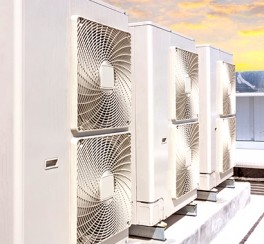
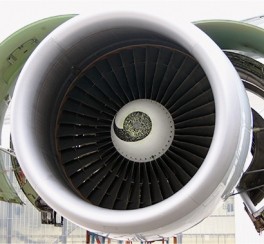


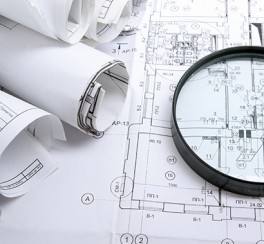
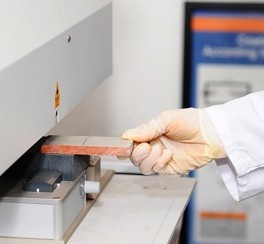
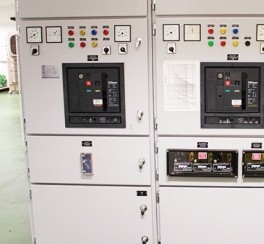


.jpg)







